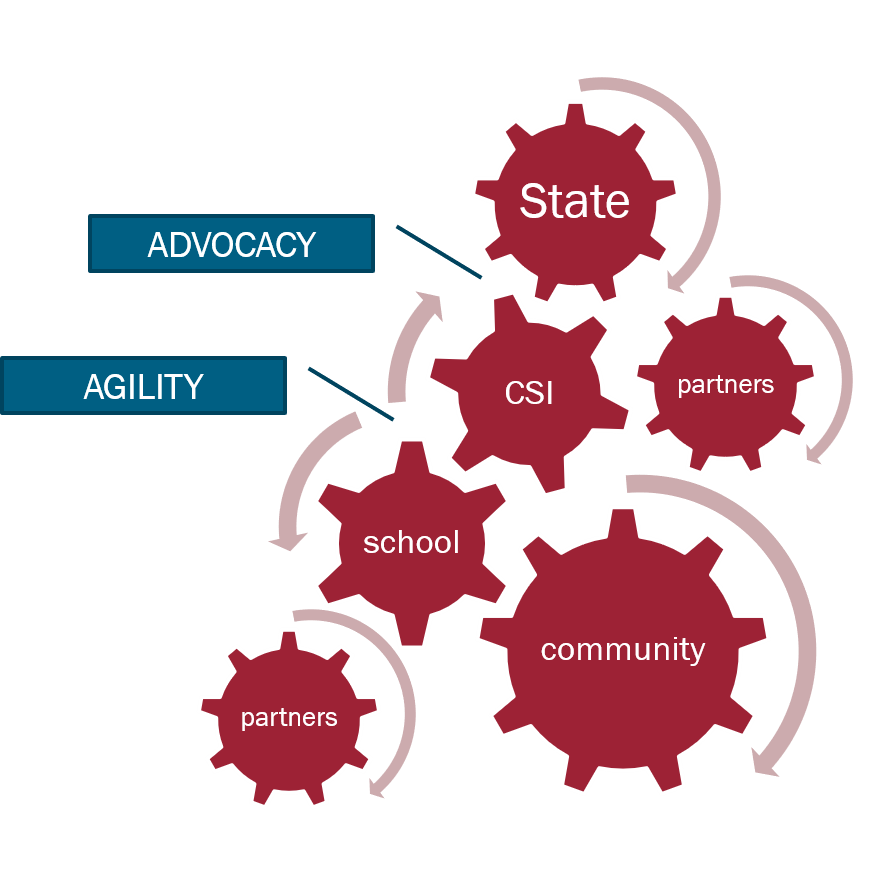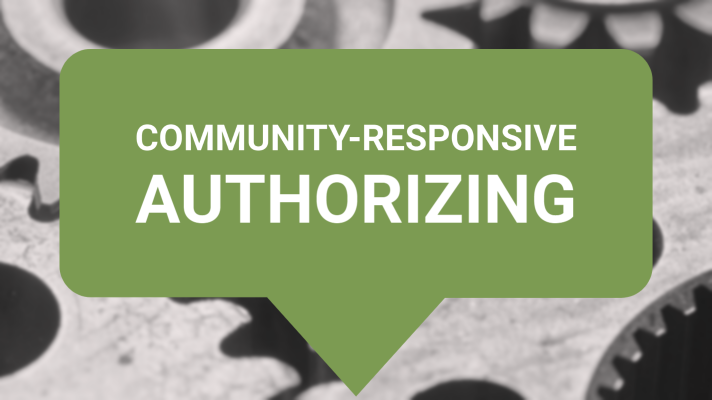As the COVID-19 pandemic led to the suspension of in-person learning in the spring of 2020, schools scrambled to continue engaging students by working with available resources and using innovation and creativity. At CSI, we were also forced to take a hard look at our role as an authorizer in this new landscape. One silver lining from this experience was the increased clarity and purpose in our work and in the expectations we set for our schools and our own staff.
NACSA’s Call
At the onset of the pandemic, the National Association of Charter School Authorizers (NACSA) called for “authorizing to be more responsive to the needs of communities – to listen to what students, families, and educators need and to act boldly even if that meant doing things outside of traditional authorizing activities”.
We agreed. Each department at CSI – from student services to data submissions to evaluation and assessment – shifted to meet the changing needs of our schools.
An Approach, Not an Answer
Natural tensions in charter school authorization have always existed. We continue to grapple with how to best balance support and compliance for our charter public schools. This challenge, however, was exacerbated by the pandemic.
- How can we continue to offer needed supports?
- How can we continue to hold schools accountable while recognizing the unprecedented challenges they face?
- And, how can we communicate consistent expectations amidst so much change and uncertainty?
While we couldn’t offer definitive answers to each question or scenario that arose, we could offer clarity in our approach as we sought to address each question.
Community-responsive authorizing is our framework for communicating our approach and expectations to stakeholders.
Clarifying Expectations
As part of a community-responsive approach, it was important that we clarify and reiterate our expectations for schools and CSI staff.
- We expect CSI schools to be responsive to the needs of their students, families, and communities.
- We expect CSI staff to be responsive to the needs of schools.
While the principles of high-quality authorizing—namely, access, accountability, and autonomy—need to be upheld especially in the midst of a pandemic, they may look a bit different than before. And, that’s okay. We have been clear with our staff and schools that we will uphold these pillars of quality authorizing. We have communicated:
- what accountability looks like without state assessment data,
- what expectations we have regarding access, and
- that schools should use their autonomy to stay true to their model while adjusting the learning format as needed to ensure safety of students, staff, and communities.
We also clarified expectations of CSI staff:
- CSI staff should act with agility in responding to the needs of schools.
- CSI staff should advocate to others to ensure CSI schools have equitable access to public resources, especially now.

Community-Responsive Authorizing in Action
One of the ways we immediately responded to the needs of our schools during COVID-19 was by hosting regular weekly calls with school leaders. We assigned CSI staff members as case managers for each school. This ensured that we kept a pulse on school and portfolio-wide challenges so we could direct resources accordingly.
The last several months have also included constant advocacy by CSI staff to ensure CSI schools have equitable access to public resources, including Coronavirus relief funds and access to PPE.
We will continue to take a community-responsive approach to authorizing through this pandemic and beyond. This approach ensures we are prioritizing the people part of the charter sector—the communities, the families, and the school staff—while also maintaining our standards of high-quality authorizing.

